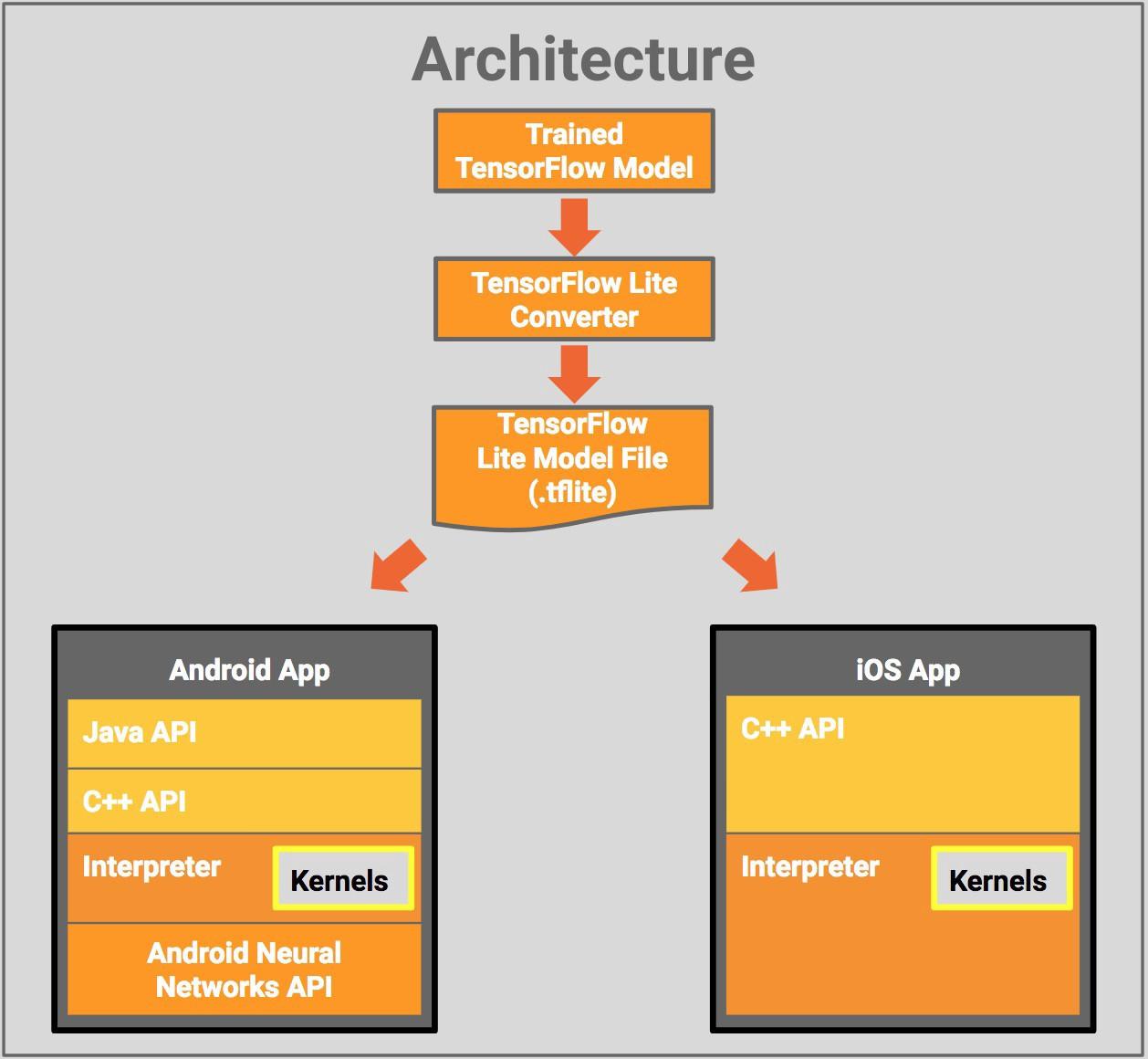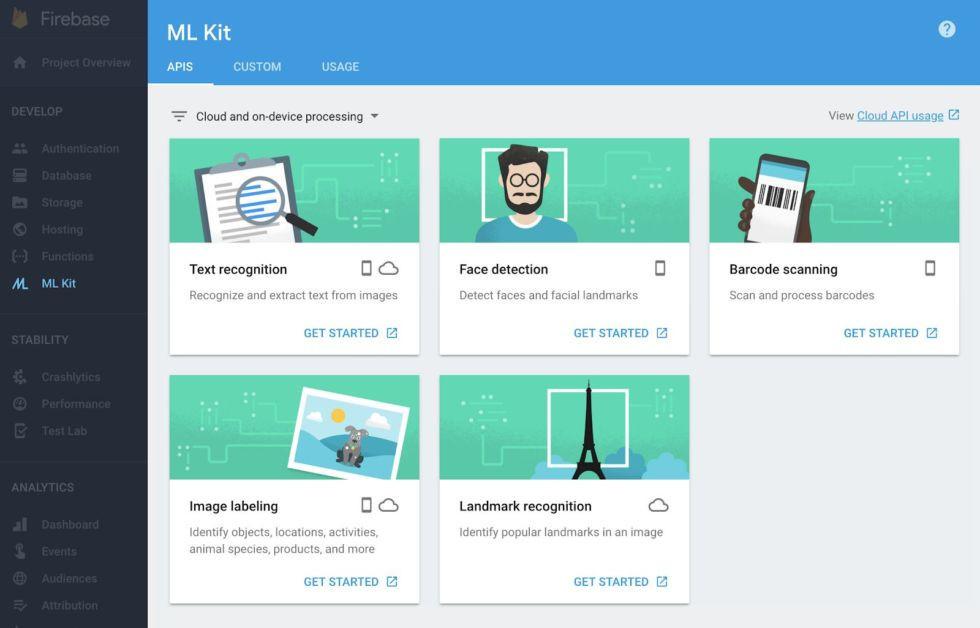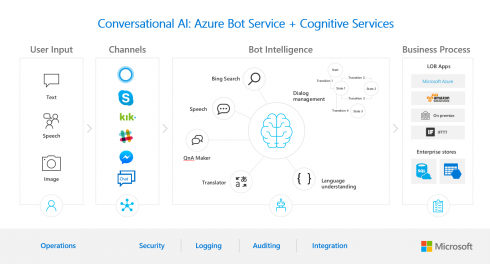
The average American spends over four hours on their smartphone every day, checking it as often as 150 times. That’s equivalent to two months per year spent scrolling, snapping, and shopping.
Using AI to make user experiences more intelligent, predictive and intuitive to consumer demand can lead to shorter sales funnels and faster lead conversion.
TENSOR FLOW MOBILE
TensorFlow Serving is a flexible, high-performance serving system for machine learning models, designed for production environments. It makes it easy to deploy new algorithms and experiments while keeping the same server architecture and APIs if your mobile app is hosted on this platform. Some of the AI-enhanced features it provides include:
- Speech recognition
- Image recognition
- Object localization
- Gesture recognition
- Optical character recognition
- Translation
- Text classification
- Voice synthesis
According to Packtpub.com, companies currently using this platform to champion more fluid, intuitive user experiences include Alibaba (speaker recognition), and Google. So getting to the objective of this article, how does this impact audience growth on mobile apps or devices? AI is essentially adaptive. When you study the lifestyle behaviors associated with the use of a mobile phone, the customer journey is not linear and with that audiences demand different experiences at different points in their day. E.g. Someone who’s multi-lingual but who’s too tired to translate into their preferred second language, they’re able to access the site in their native tongue OR features like gesture recognition is now making social media selfies much easier without a click needed to take one. Making mobile app improvements like these can create positive outcomes such as greater brand and user trust, credibility and return visits

Source: medium.com
GOOGLE MACHINE LEARNING KIT
At this point, we should clarify that AI and ML intertwine with each other but are not the same. ML is a subset of AI. ML refers to systems that can learn by themselves. Deep Learning (DL) is ML but applied to large data sets. Most AI work now involves ML because intelligent behavior requires considerable knowledge, and learning is the easiest way to get that knowledge. Google’s ML Kit enables developers to:
- Optimize for Mobile: iOS and Android apps are more engaging, personalized, and helpful with solutions that are optimized to run on a mobile device.
- Build for Vision-Based Engagement: Video and image analysis APIs are available to label images and detect barcodes, text, faces, and objects.
- Build for Adaptive Language: Natural language processing APIs are present to identify and translate between 58 languages and provide reply suggestions.
- Custom Features: You can build your own models using AutoML Vision Edge—or bring your own TensorFlow Lite models—run experiments, and deploy them in production with ML Kit.

Source: arstechnica.com
MICROSOFT AZURE (COGNITIVE)
Ever wondered if there’s a point in creating your own mobile app? What’s everyone doing on their phones? Well, 90% of mobile time is spent on apps. Microsoft Azure has a collection of APIs, SDKs, and services to enable developers to easily add cognitive features to their applications such as emotion and video detection, facial, speech, and vision recognition, just to name a few. Their features include:
- Vision: Apps can identify and analyze content within images and videos. It provides capabilities such as image classification, optical character recognition in images, face detection, person identification, and emotion identification.
- Speech: Integrate speech processing capabilities into your app or services such as text-to-speech, speech-to-text, speaker recognition, and speech translation.
- Language: Your application or service will understand the meaning of the unstructured text or the intent behind a speaker’s utterances. It comes with capabilities such as text sentiment analysis, key phrase extraction, automated and customizable text translation.
- Knowledge: Create knowledge-rich resources that can be integrated into apps and services. It provides features such as QnA extraction from unstructured text, knowledge base creation from collections of Q&As, and semantic matching for knowledge bases.
- Search: Using Search API you can find exactly what you are looking for across billions of web pages. It provides features like ad-free, safe, location-aware web search, Bing visual search, custom search engine creation, and many more.

Source: https://sdtimes.com/
-
If you’re looking to find new, organic ways to improve your mobile app performance throughout the year, be sure to reach out to our team for a complimentary growth marketing session. We’d be happy to walk you through how responsive design, visual storytelling, and engaging social media campaigns can take your brand’s success to the next level.
Let's Get to Work.
Have an unsolvable problem or audacious idea?
